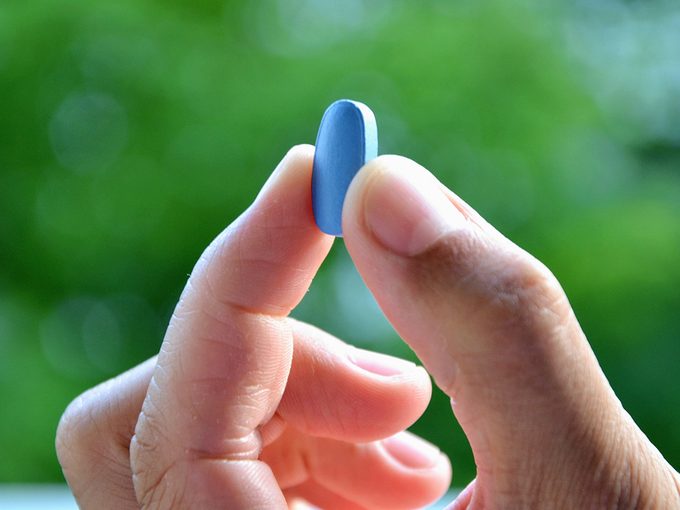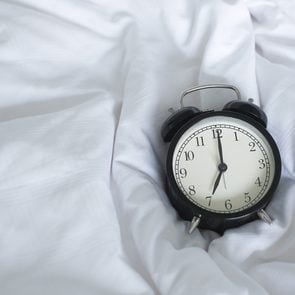Why You Should Never Ignore Erectile Dysfunction

Sure, it's easy to treat—but a closer look at the underlying causes could save your life.
More than two decades ago, Pfizer changed the game for men with the erectile dysfunction remedy Viagra. In 2017, the company’s patent on the “little blue pill” expired, and the market changed dramatically again. Pfizer introduced its own generic version at half the price of the original, and more competitors also came onto the market. Viagra and other similar pills are now incredibly easy to get: in some U.K. pharmacies, you can get a version of Viagra over the counter; in the U.S., many people buy it online.
The potential demand for these pills is huge. According to the Massachusetts Male Aging Study—the first large-scale investigation of erectile dysfunction—more than half of men between the ages of 40 and 70 sometimes suffer from the condition.
But that doesn’t mean it’s an unavoidable part of aging. “Older men who are in good health can still have good erections,” says Dr. Guy T’Sjoen, head of the Department of Endocrinology and Center for Sexology and Gender at Ghent University Hospital in Belgium.
Erectile dysfunction causes
Instead, erectile dysfunction is often a sign of an underlying issue. The most serious ones are heart disease, diabetes and high blood pressure. Today, blood isn’t flowing to the penis, but a few years from now, it might not be flowing to the heart. A 2018 study found that men with erectile dysfunction were twice as likely to have a heart attack or stroke over the next four years.
That’s why a doctor will often test for these conditions before looking to other common culprits: medications, such as SSRI antidepressants and blood thinners, or hormonal imbalances, such as a thyroid issue or low testosterone.
Erectile dysfunction can also be caused by an unhealthy lifestyle: obesity, smoking and inactivity all increase your risk. The good news is that weight loss and exercise programs have been proven to help, and smokers—even long-term ones—often see a rapid improvement if they quit.

Medical treatment for erectile dysfunction
And of course, medication is always an option. Drugs like Viagra (a.k.a. sildenafil) work by helping the muscles in the penis relax. That lets in more blood and results in a natural erection in response to being sexually stimulated (just popping the pill alone won’t do it). But sildenafil has to be taken an hour before sex and only works for the next four hours, which some users don’t like because it means you have to time intercourse accordingly.
Another popular drug is tadalafil—sold as Cialis—which doesn’t have those same time limitations. “We call it the weekend pill because it works for 36 hours,” says T’Sjoen. “If you take it Friday afternoon, it’s still working Friday and Saturday night.” For even more flexibility, a lower-dose version can be taken daily.
In addition to medications, T’Sjoen says he always advises men to also speak to a psychologist about performance anxiety, since it often develops during a period of erectile dysfunction.
And he reminds men to not be shy about bringing up problems with their doctors. The drug treatments are easy and effective, and you don’t want to miss a larger issue. “Having an erection is a sign of good mental and physical health, and if you have erectile dysfunction, it’s a warning sign,” he says. “We really encourage men to talk to their GP—it may be a lifesaver.”
Now that you’re familiar with the potential causes of erectile dysfunction, check out 13 sexual health tips your urologist wants you to know.






